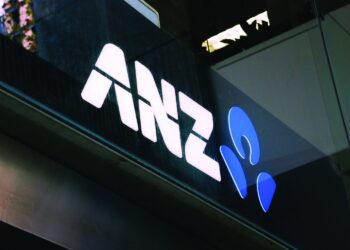Following its decision to lift rates by a widely unexpected 50 basis points (bps) in June, the Reserve Bank of Australia (RBA) passed another 50-bp rate hike on Tuesday, taking the official cash rate from 0.85 per cent to 1.35 per cent.
The current inflation pressures in the economy were once again cited as the key consideration behind the RBA’s latest decision.
In May, inflation spiked to its highest level in over two decades and while a blowout was predicted, economists didn’t quite expect such a sizable jump in both the headline and underlying inflation.
Following the inflation shock, the RBA upped its forecast for 2022, predicting headline inflation of around 6 per cent in December. But just days later, Governor Philip Lowe announced another revision, predicting inflation would in fact reach 7 per cent driven partly by external factors such as the war in Ukraine and global supply issues.
Prior to Tuesday’s rate call, economists had widely agreed that a 50-bp hike was the most likely scenario.
AMP’s chief economist Shane Oliver declared the cash rate at 0.85 per cent as far too low for an economy with a 3.9 per cent unemployment rate and inflation on its way to 7 per cent by year end.
“The RBA needs to continue raising rates for now to underline its commitment to returning inflation to its 2 to 3 per cent target range and ensuring that inflation expectations remain low,” Dr Oliver said.
Similarly, Commonwealth Bank’s Stephen Halmarick predicted the increase, noting that “a global monetary policy tightening cycle is well underway.”
Across the board, economists agreed that inflationary pressures needed to be addressed quickly and sharply, with RMIT’s Sveta Angelopoulos adding that rapid increases in the short term “will send very concrete messages to markets and may avoid longer-term pain down the track”.
Central banks trying to avoid Great Inflation at all costs
Speaking on a recent podcast hosted by InvestorDaily’s sister brand ifa, Dr Oliver explained that central banks, globally, are trying to avoid the 1970s scenario which extended into the 1980s and is now commonly referred to as the Great Inflation.
“That’s why central banks have suddenly become a lot more aggressive in raising interest rates,” Dr Oliver explained.
“Memories for those that looked at the history books or who were around at the time go back to the 1980s when the US central bank under Paul Volcker decided to squeeze inflation out of the system. And then we had two back-to-back recessions in the US, we had a recession in Australia.
“That’s the big worry here. And obviously the risks have gone up because you’ve got all these shocks on top of each other,” the chief economist added.
According to Dr Oliver, the RBA’s best course of action is to lift interest rates “relatively aggressively” in the short term before pausing later this year.
“I think at the end of the day, we’re not going to see the interest rates at 4 per cent, which is what the money market’s talking about,” he said.
Dr Oliver is confident that rates will end up at around 2.1 per cent in December.
“We think that given the heightened sensitivity of Australian households to higher interest rates because of higher debt levels, that the Reserve Bank won’t have to and won’t go to those very high levels,” Dr Oliver noted.
“I think the Reserve Bank is not stupid, it knows that there’s more debt out there. It knows that people are more sensitive than in the past to higher interest rates. And it also knows that there’s been a big blow to household income,” he continued.
“So, I think the Reserve Bank won’t ignore those things and therefore they won’t have to raise interest rates as much as many fear in this environment.”







